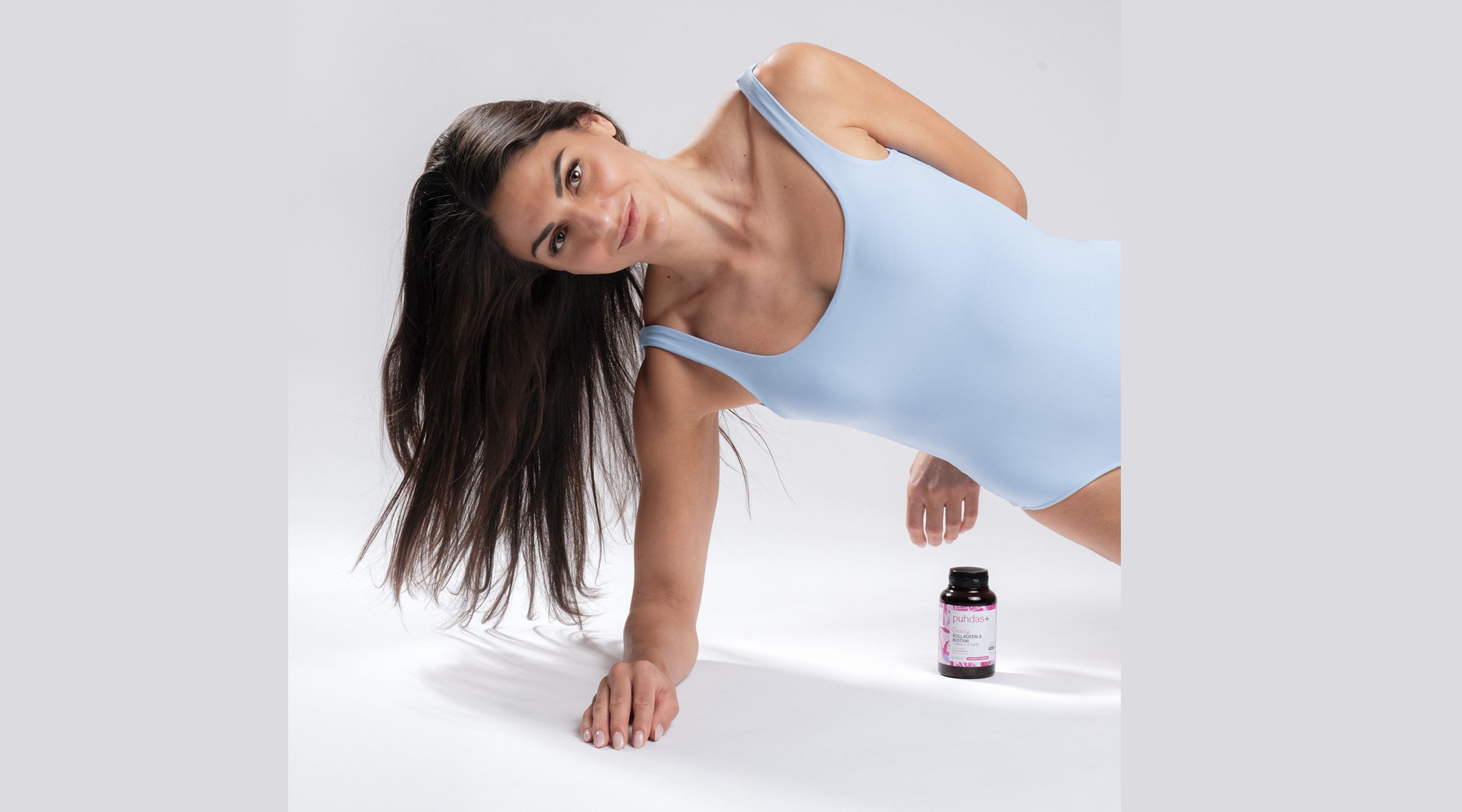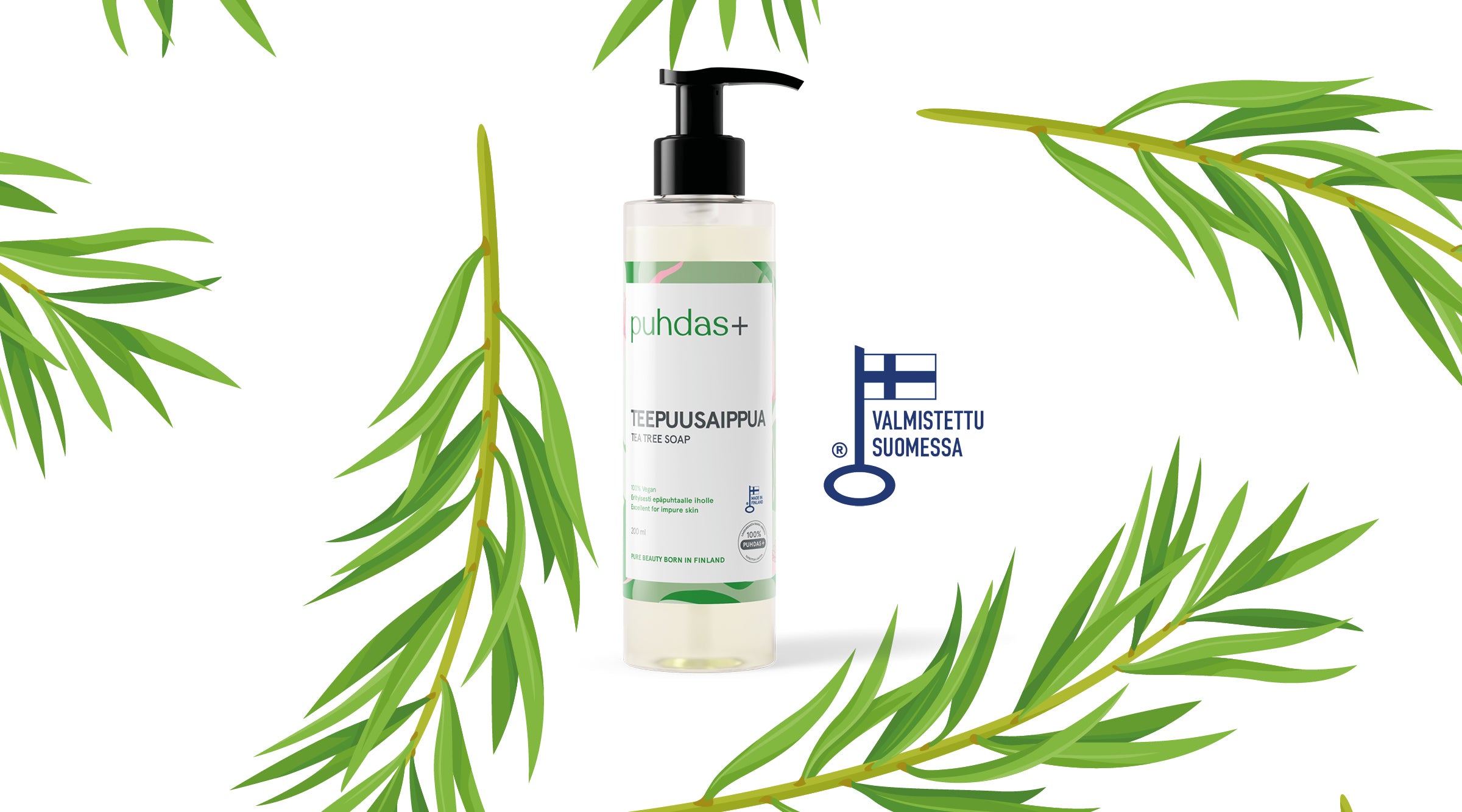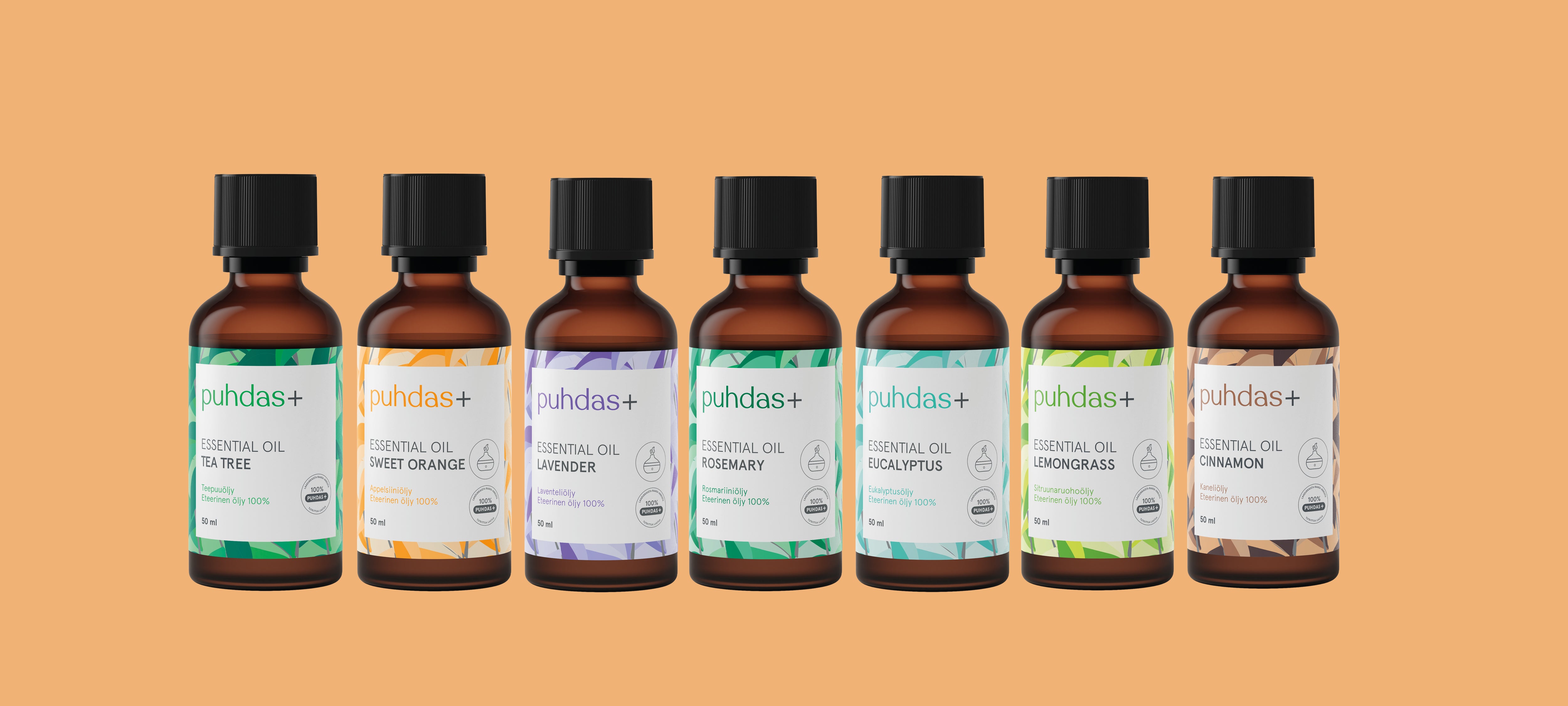After talking in the previous parts of this series of posts ( Part 1 and Part 2 ), e.g. from the correct dosing and storage of essential oils, it's time to move on to concrete usage tips! Please note that all the instructions below are written with basically healthy adults in mind. In the case of sensitive persons, such as small children or those suffering from various diseases, it is always advisable to consult a trained Aromatherapy professional before using essential oils. 3 very versatile essential oils for home use Lemon (Citrus limon) The essential oil produced from lemon peels has been well studied in the scientific world with results, for example, in alleviating pregnancy sickness (1) and enhancing concentration and learning ability (2). The tangy and fresh-smelling oil is a refreshing companion, for example, in the office or on a student's desk. Lemon is also easily compatible with almost any other essential oil, so you can easily combine it with others to create your own scent blends. For example, by adding lemon and eucalyptus to the diffuser at the same time, you can perform the easiest quick cleaning: A fresh-smelling home feels like it's just been cleaned, even if you haven't touched the vacuum cleaner! When using lemon essential oil on the skin, it is important to remember that it has a phototoxic effect when combined with UV radiation. A phototoxic skin reaction resembles a burn. Therefore, do not use skin products containing lemon essential oil when you are known to visit a solarium or spend time in the sun. Lavender (Lavandula angustifolia) Lavender essential oil is perhaps the most well-known and used in aromatherapy. It is a gentle and mild oil that can be used on the skin in exceptional cases (for example, as a quick first aid for an insect sting) even without diluting it with a carrier oil. The scent of lavender is most often used for relaxation purposes. Scientific studies can be found, for example, on the effect of lavender essential oil on premenstrual (3) and menopause symptoms (4). If you're not sleeping well, try putting one drop of lavender on a tissue that you place on your bedside table or next to your pillow. You shouldn't drip the scent directly onto the bedclothes, because then you won't be able to get rid of the scent if you want to, like changing the sheets in the middle of the night. If you don't like the smell of lavender alone, you can try rounding off its smell with the help of, for example, orange oil, which also has a relaxing effect. Sweet orange (Citrus sinensis) The scent of sweet orange essential oil pleases almost everyone's nose. It's a great choice to bring a happy and relaxed atmosphere as a room scent, but it's also often recommended to ease indigestion. Dilute one drop first with vegetable oil (eg jojoba) and then rub it on the stomach in the direction of digestion. You should try this in the summer, for example, if you feel like eating in the intoxication of barbecue parties. Even sweet orange essential oil is of great interest to researchers, especially in relation to alleviating fears and anxiety. (5, 6). Recipe tips: A refreshing oil blend for massaging tired legs or stiff shoulders 1-2 drops of juniper berry oil 1 drop of peppermint oil 15ml of almond oil A gentle oil blend for a stress-relieving massage 1 drop of ylang ylang 2 drops of sweet orange 15ml of almond oil The same mixture can be used to treat dry skin. If your skin is very dry, try replacing some of the almond oil with sea buckthorn oil! A relaxing oil blend for the diffuser 3 drops of sweet orange 1 drop lavender An invigorating scent mix for the diffuser 1 drop of rosemary 2 drops of pine 2 drops of lemon or lemongrass Renowned aromatherapy trainer Jenna Puumalainen works as a guest writer for Puhdas+ Essential Oils. Jenna works as a naturopath, aromatherapy trainer and chairperson of the board of the aromatherapy association. You can get to know Jenna in more detail: https://www.mielirohto.fi/ Referenced studies: 1) Yavari Kia P, Safajou F, Shahnazi M, Nazemiyeh H. The effect of lemon inhalation aromatherapy on nausea and vomiting of pregnancy: a double-blinded, randomized, controlled clinical trial. Iran. 2014. https://www.ncbi.nlm.nih.gov/pmc/articles/PMC4005434/ 2) Akpinar, Burhan. The Effects of Olfactory Stimuli on Scholastic Performance. Turkey. 2005. https://www.jstor.org/stable/30077505?seq=1#page_scan_tab_contents 3) Uzunçakmak T, Ayaz Alkaya S. Effect of aromatherapy on coping with premenstrual syndrome: A randomized controlled trial. Turkey. 2018. https://www.ncbi.nlm.nih.gov/pubmed/29458934# 4) Bakhtiari S, Paki S, Khalili A, Baradaranfard F, Mosleh S, Jokar M. Effect of Lavender aromatherapy through inhalation on quality of life among postmenopausal women covered by a governmental health center in Isfahan, Iran: A single-blind clinical trial . Iran 2019 https://www.ncbi.nlm.nih.gov/pubmed/30712745
- Lehrner J, Eckersberger C, Walla P, Pötsch G, Deecke L. Ambient odor of orange in a dental office reduces anxiety and improves mood in female patients. Austria. 2000. https://www.ncbi.nlm.nih.gov/pubmed/11134689
- Jafarzadeh M1, Arman S, Pour FF. Effect of aromatherapy with orange essential oil on salivary cortisol and pulse rate in children during dental treatment: A randomized controlled clinical trial. Iran. 2013. https://www.ncbi.nlm.nih.gov/pmc/articles/PMC3732892/




